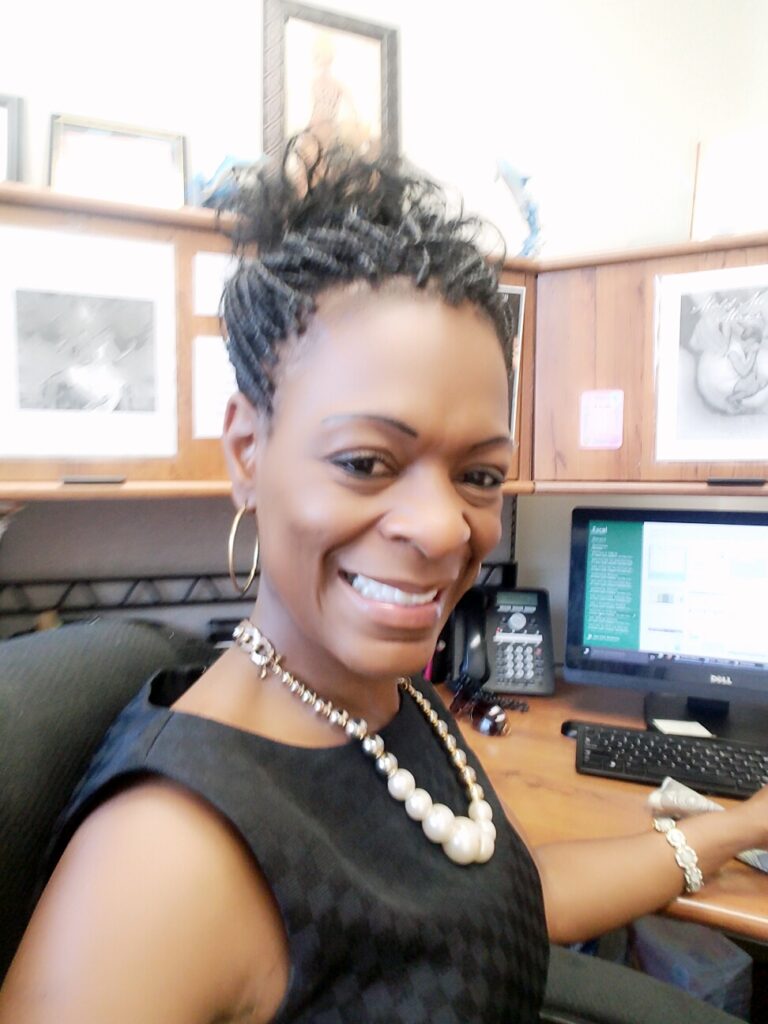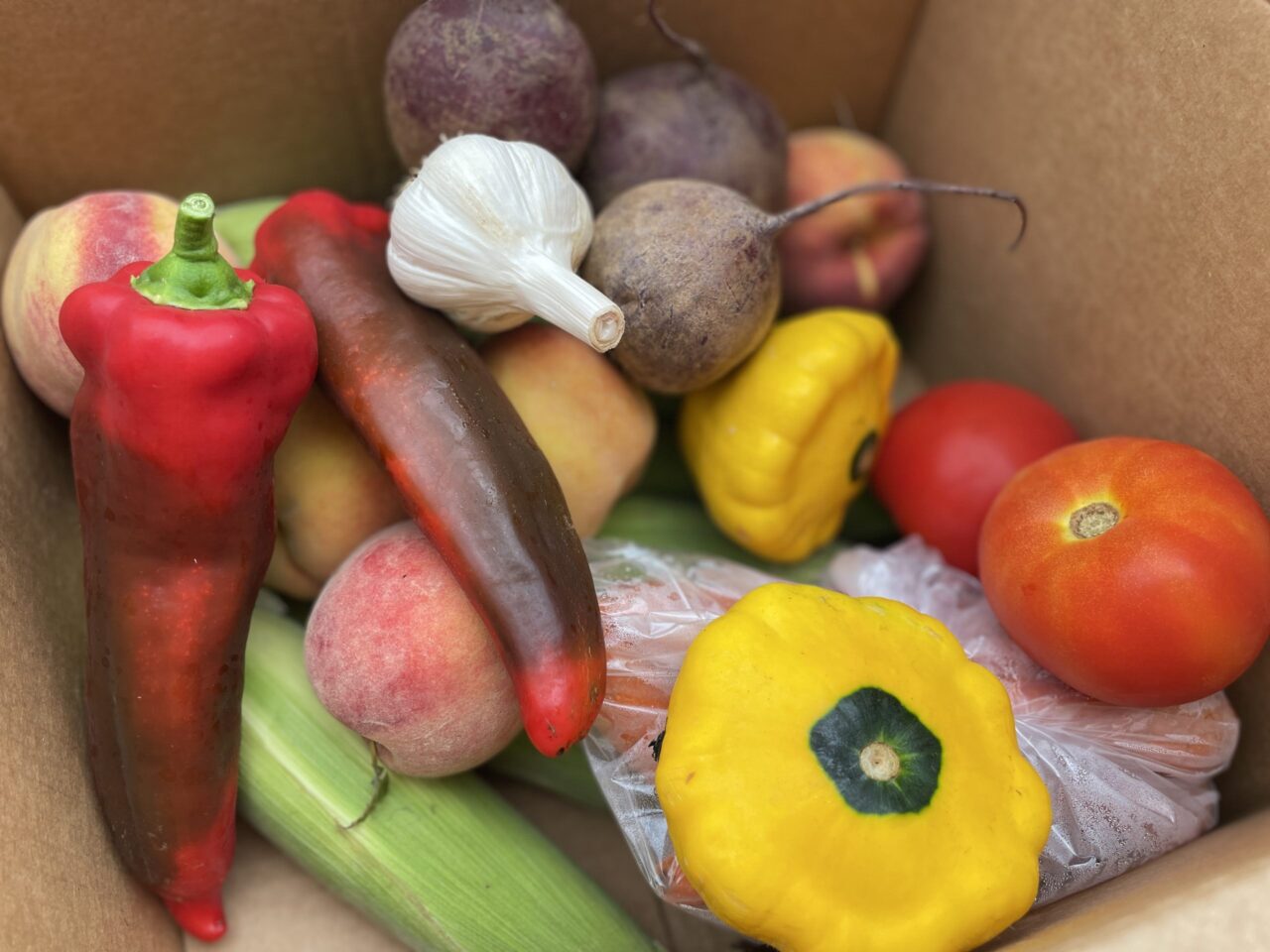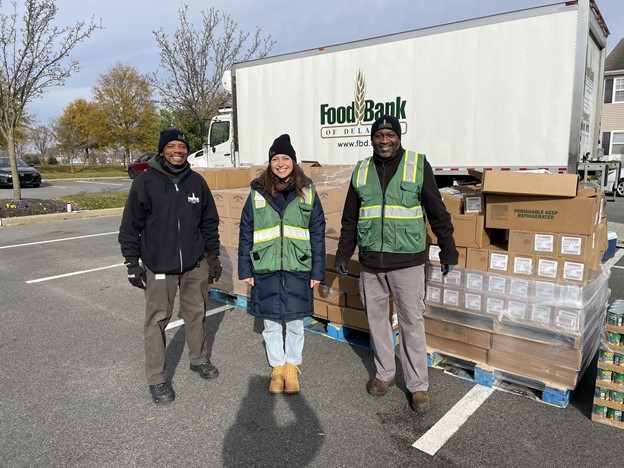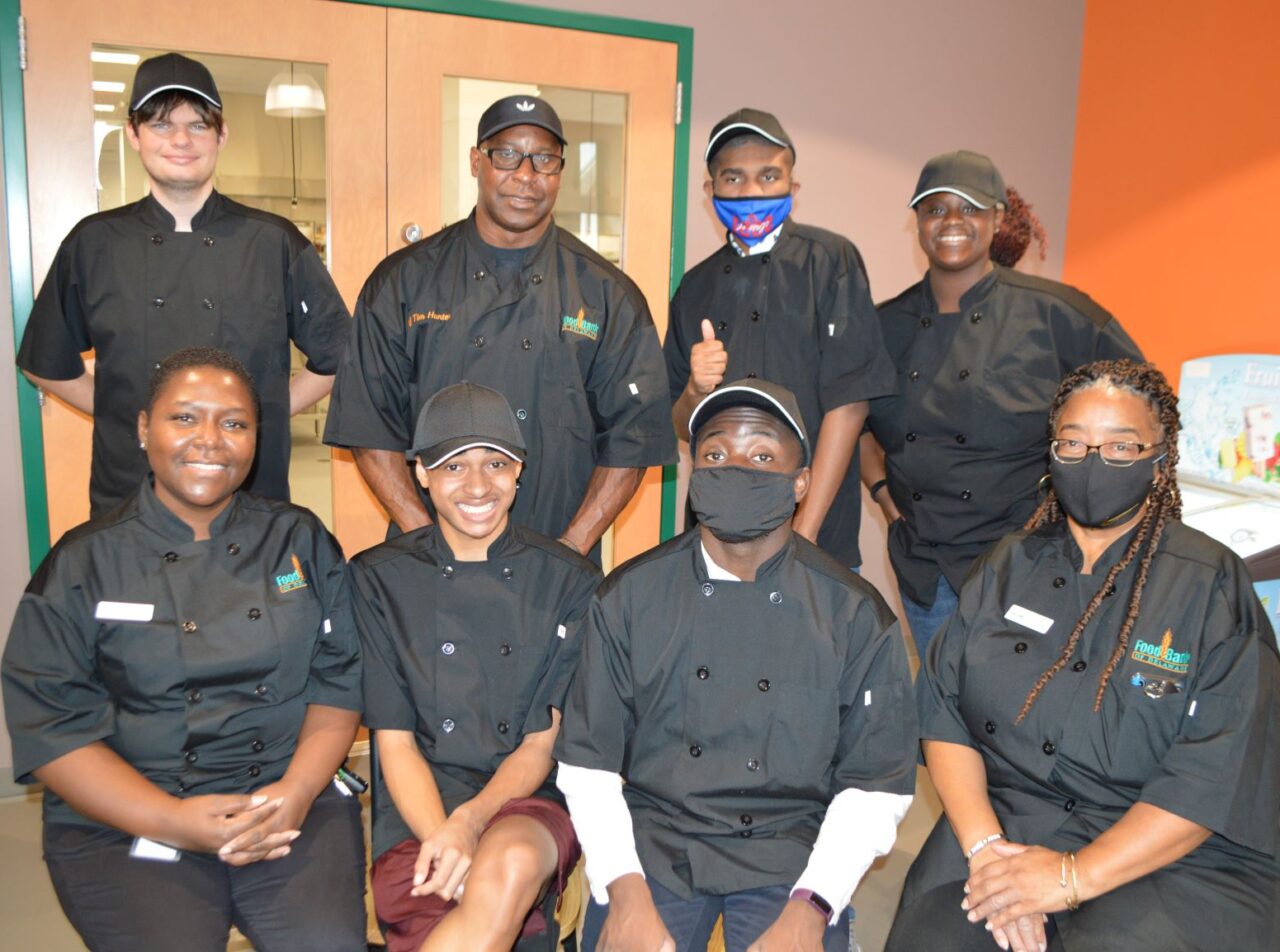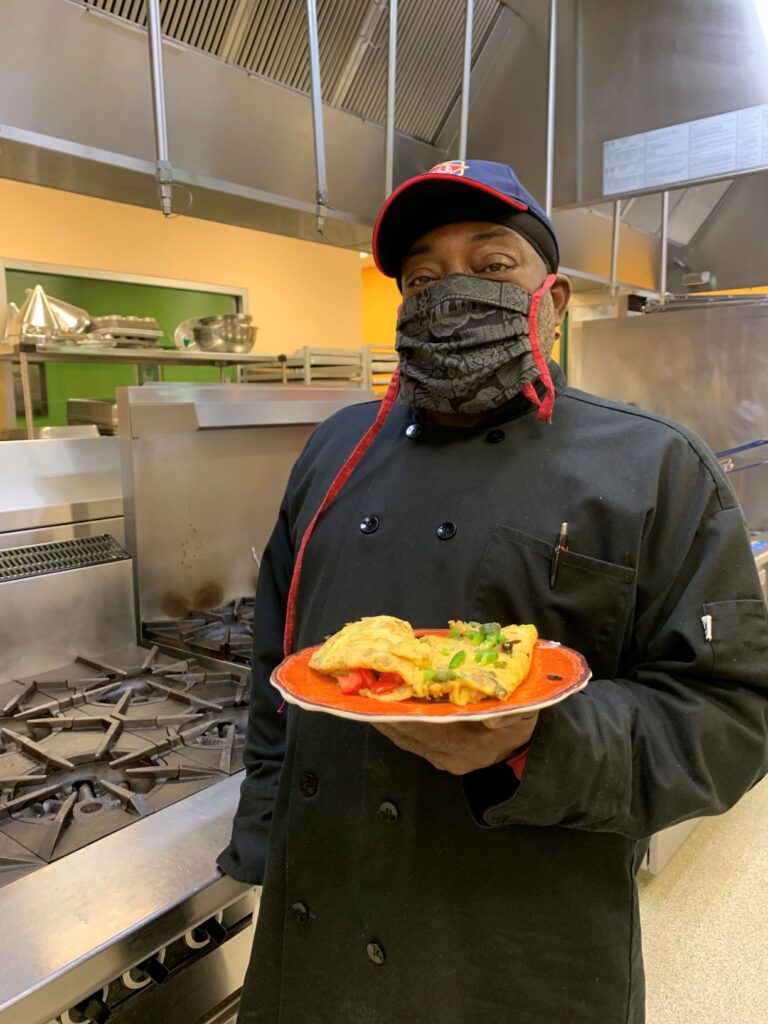Lessons learned from childhood key to successful parenting, career
August 11, 2016
By Gwen Guerke, Communications Coordinator
Sandi Hagans is no stranger to poverty or food insecurity, and perhaps that’s why she’s been so accomplished in her career as Community Based Program Manager at First State Community Action.
She did not forgot where she came from, never lost touch.
Hagans said she can relate to her clients because she has been a client herself at this agency. She’s sought assistance with a bill or to provide Christmas gifts for her family.
She grew up as one of 12 children in a family led by a single mother. Life was far from easy.
“She (her mother) worked very hard to ensure that we were cared for, that all of our needs were met, and if possible some of our wants were met,” she said.
Hagans, now 50, works directly with people who are trying to create a better life for themselves, and she freely shares her story in the hopes that she will encourage others to persevere.
She grew up before the Food Bank (founded in 1981) existed, and attended school before there was a wide net of social services.
“We received free lunches during school, but breakfast was not provided. At times, we would have cereal or toast for breakfast. Sometime between breakfast and lunch, the wait seemed to be so long. By lunch time, I was nice and hungry,” she said.
Her recollections of childhood fun soften the remembrances of hungry times.
In addition she and her siblings were resourceful and often foraged for food.
“Cornfields were our favorite. We would sneak and pick the ripened corn and have our sister cook it. We never thought much about it. It was just something to do and not a means of survival. However, it was a source of food. We would have gotten in trouble if mom found out we were sneaking in the cornfield,” she said.
As a young adult, she had to address the same challenges her mother faced; she was a single parent who often had to rely on benefits provide by state agencies.
“I raised my six children, and I did the best I could do and I worked with what I had I learned from my mother such as making $20 stretch for an entire week. I remember her saying, ‘It’s not what you eat, but what fills the hunger spot.’ I can recall on many occasions, when food was low, I let my children eat first. If something was left, then I would take the left overs. We managed. I just didn’t want them to go to bed hungry because like me at that age, they did not see poverty,” she said.
Meanwhile, Hagans was attempting to break the cycle of poverty by getting an education, by improving herself.
“I just wanted to be an example to them, a role model that they could reflect on. I needed to ensure that they too could be great parents one day, and they could be successful. I often told them that no matter what, they could do whatever they wanted to, be whatever they wanted to be, and have whatever they wanted to have. But it came with education and making good choices and decisions. This came with accountability and staying focused. Once again, I had to be the example,” she said.
At first, she was a stay-at-home mother, a high school drop-out who had to rely on food stamps.
“These benefits had limits to what you could do or have. I enrolled in a program through DHSS called Future Options,” she said.
Hagans earned her GED, and the program’s director, Zakya Bakarri, urged her to go to Delaware Tech and enroll in the human services program.
She involved her children in the educational process, then graduated cum laude. She signed up for the bachelors program and graduated magna cum laude with a degree in behavioral science.
After a short break, she pursued a master’s degree in community counseling and now looks forward to completing Wilmington University’s doctoral program in December.
All this was accomplished while Hagans was working and gaining financial freedom.
“I try to build rapport with all of the families and their children. Trust is a huge factor. They disclose a lot of information, but they have to trust us first. There are a lot of organizations and agencies that are here to assist families but it is our job to get them connected,” Hagans said.
Her children followed that example she set and earned degrees as well.
“This is a great deal for me. I am not debt free, but I am not in a financial struggle. This educational process was not for me. My moments of hunger were not for me. It’s to help others on their journey. It’s to use the skills I’ve obtained, /life experiences that I have encountered to coach someone through their life challenges,” she said.
Hagans says she understands, on a very personal level, how the Food Bank helps children and their families.
“I am grateful for the Food Bank. To see these kids go home in the afternoon or on a Friday and have extra food for the week-end, it’s overwhelming in a good way.”
For more information about programs offered by the Food Bank of Delaware, visit www.fbd.org.


